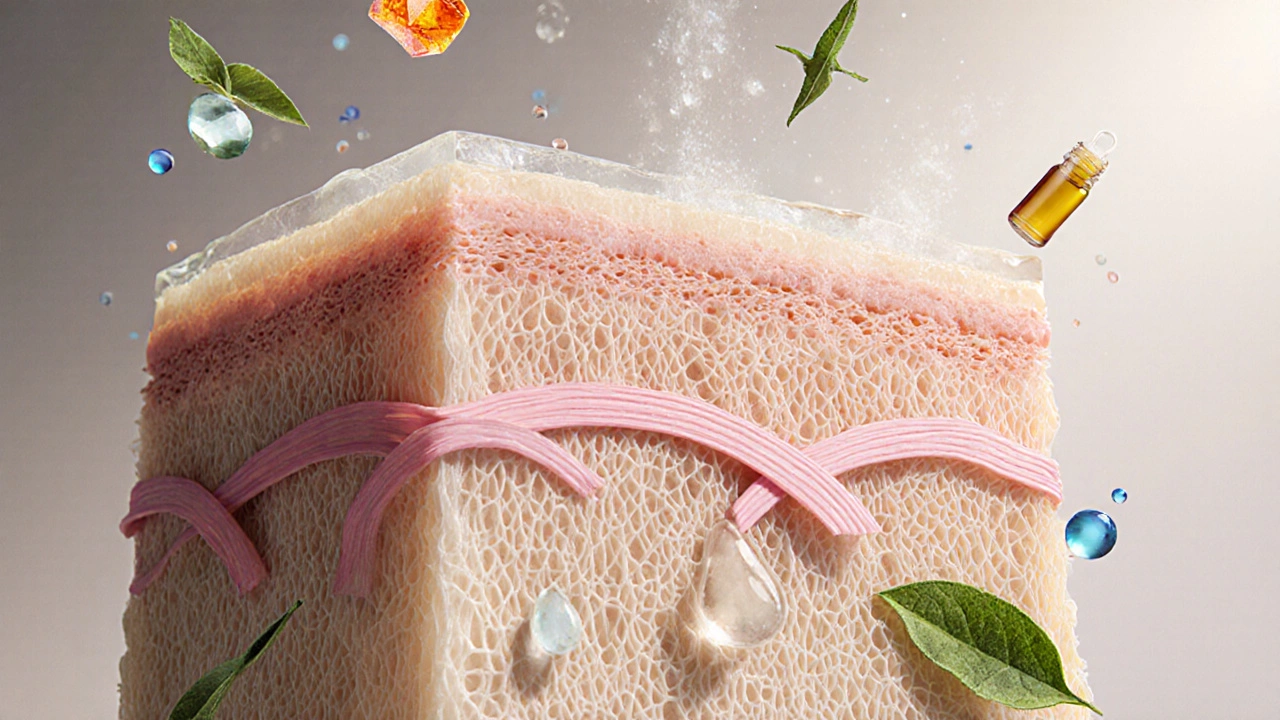Anti-Aging Skincare Tips & Tricks for 2025
Want skin that feels fresh instead of tired? Anti‑aging isn’t about magic creams; it’s about daily choices that add up. Below you’ll find straightforward habits, product pointers, and treatment basics that fit into a busy life.
Everyday Habits that Slow Down Wrinkles
First off, think of your skin like a car. Regular oil changes (hydration) and clean air (pollution protection) keep the engine running smooth. Drink at least eight glasses of water a day—your skin learns fast when it’s dehydrated. Cut back on sugar; high glucose levels break down collagen, the protein that keeps skin firm.
Sun protection is non‑negotiable. Even on cloudy days, UV rays sneak through. Pick a broad‑spectrum SPF 30+ and reapply every two hours when you’re outdoors. Hats and sunglasses add an extra layer of defense without any effort.
Sleep isn’t just for feeling rested; it’s when your skin repairs itself. Aim for 7‑8 hours, and try to keep a consistent bedtime. If you can’t get enough sleep, short power naps still give your skin a chance to recover.
Ingredients That Really Deliver
When you’re scanning product labels, look for these three anti‑aging power players:
- Retinoids – Vitamin A derivatives that boost cell turnover and smooth fine lines. Start with a low concentration (0.25%) to avoid irritation.
- Vitamin C – An antioxidant that brightens and protects against free radicals. A stable formula in a dark bottle works best.
- Peptides – Small protein fragments that signal skin to produce more collagen. They’re gentle and pair well with retinoids.
Mix and match these ingredients based on your skin type. For sensitive skin, use vitamin C in the morning and a peptide serum at night, saving retinoids for a few times a week.
Don’t forget a good moisturizer. Hyaluronic acid draws water into the skin, while ceramides lock it in. A simple two‑step routine—cleanser, then moisturizer with one of the actives—covers most bases.
Professional Treatments Worth Considering
If you’re ready to level up, a few in‑office options can boost results. Microneedling creates tiny channels that stimulate collagen; combine it with a vitamin C serum for extra glow. Chemical peels (AHA or BHA) exfoliate deeper layers and smooth texture. For a high‑tech route, laser resurfacing targets deep wrinkles but requires downtime.
Whatever you choose, book a consultation first. A professional can assess your skin, recommend the right strength, and set realistic expectations.
Bottom line: anti‑aging works best when you blend consistent daily care with smart product choices and occasional professional help. Try one habit at a time—water, sunscreen, then a retinoid—and watch how your skin improves. Stay patient, stay consistent, and enjoy the fresh, youthful look you’ve earned.
At What Age Do You Age the Fastest? The Science Behind Rapid Aging
Aging speeds up dramatically between 30 and 40 due to collagen loss, hormonal shifts, and slower cell repair. Learn the science behind why this decade matters and what actually works to slow it down.
Natural Face Tightener Explained: Benefits, Ingredients & DIY Tips
Learn what a natural face tightener is, how it works, key ingredients, DIY recipes, usage tips, and safety advice for effective anti‑aging results.
Do Anti-Aging Products Really Work? The Truth Behind the Claims
This article digs into whether anti-aging products actually deliver on their promises. It breaks down common ingredients, what science says about their effects, and which ones really make a difference. You'll get honest tips on what to look for in a product and how to dodge common marketing tricks. Find out what works, what’s hype, and how to spot scams. It’s everything you need to know before you spend another penny on that next miracle cream.
Proven Ways to Achieve a Youthful Glow for Mature Skin
Unveiling the secrets to a youthful complexion doesn't have to be a mystery. Exploring the latest advancements in skincare, along with timeless beauty rituals, you can effectively reduce the signs of aging. From the science behind collagen production to practical daily habits, discover how you can make your face look younger. These tried-and-true methods, when incorporated into your routine, can lead to a remarkable transformation. Embrace the journey to radiant and youthful skin with these comprehensive insights.




